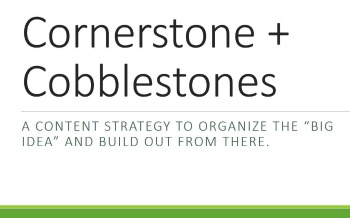Word counters can be very helpful.
They’re useful for:
- keeping post meta descriptions under 156 characters
- tweaking an online application so your bio fits in the allocated space
- checking that tweets + links stay under 140 characters
- ensuring that your LinkedIn invites fall under 300 characters
Oh, wait — that last one would be useful if LinkedIn would just add a counter.
You know what word counters aren’t useful for?
Blog posts.
There is no ideal blog post length.

Do a search for “ideal blog post length.” I’ll wait. Done yet? You see, the answers are all over the place.
[bctt tweet=”The ideal blog post length? Say what you need — no more, no less.”]
People who consistently write quality long blog posts (define as you will) will tell you that long, comprehensive blog posts are ideal. People who write short posts argue that no one reads anymore so you better be concise — and many of these bloggers also get a lot of traction.
Well, doh.
If I consistently wrote 1,500 word blog posts, my readers would be people who want to read long, meaty pieces. (And visa versa for the quick hit posts).
My posts are the length they need to be.
Yoast SEO (my WordPress SEO plug-in) has a 300-word recommended minimum. Most of my posts are over that number because my aim in writing blog posts isn’t just to point you to a story or a resource — but to tell you why.
We’re at 238 words right now.
(See what would happen if I were a slave to the word counter?)
In a recent #blogchat, Mack Collier asked participants: “As a blogger, do you write more longer (over 1,000 words) posts, or more short (under 500 words) posts? Which do you prefer?”
Here’s what I replied:
.@dariasteigman Good point but it can also be about giving yourself permission to write shorter posts #blogchat
— Mack Collier (@MackCollier) January 25, 2016
My first four blog posts of 2016 were 596, 440, 789, and 761 words. This one is shorter — but hopefully all of them are the length they need to be.
How long are your blog posts?
Jelly beans by Troy McCullough (Flickr).



